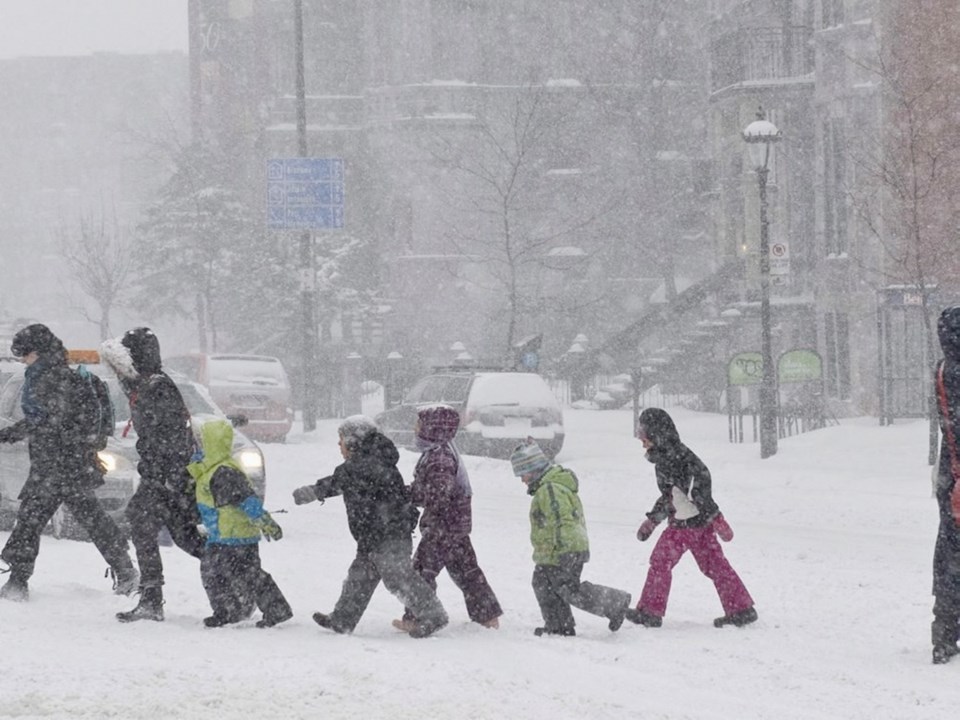It probably seems disingenuous to be writing about childcare policy and the United States of America in the same sentence.
Even not taking into account the cruelty being inflicted on undocumented immigrant children by that country’s ruling political party, it seems that, generally speaking, early-childhood programs across the U.S. suffer from the lack of a well-thought-out national policy.
The 2018 National Institute for Early Education Research state-by-state report identifies growing disparities in both enrolments and quality in early childhood care between 2002 and 2017.
In 2017, New Jersey, for example, spent more than $12,000 per child, while across the country, average state preschool spending per child was $5,008, with some states as low as $3,000.
Benchmarks of program quality also vary wildly: teacher qualifications, teacher specialized training, maximum “class” size, screening and referral of children with special needs.
So as B.C. launches its own ambitious early-childhood care program, it is timely to take a look at the mistakes made in the U.S. and consider next steps about how B.C. programs will be organized beyond the announcement of $237 million in the spring budget as part of a three-year, $1-billion commitment to more childcare spaces.
A May 2016 Fraser Institute report, Child Care in Canada: Examining the Status Quo in 2015, agreed that: “Governments in Canada have decided that it is good public policy to help subsidize the cost of raising children, especially for children in low-income households.”
Altogether, the report found, federal programs in Canada that direct cash benefits to families with children cost about $24 billion this year. That’s before the B.C. decision.
In nine of the 10 provinces, a variety of child-specific cash benefits are provided by different levels of government to families based on levels of income. They include the Canada Child Tax Benefit, the National Child Benefit Supplement, the Universal Child Care Benefit, the Canada Education Savings Grant and the Child Care Expense Deduction.
In addition, each province has programs designed to help families with children. Most of the provincial programs are also income-tested, so the benefits flow mainly to lower-income families.
But B.C. has had some catching up to do. Until now, B.C. had spent less than the Canadian average, with only New Brunswick spending less.
The Fraser Institute paper’s final section provides an overview of the research on the effects of daycare programs on children’s cognitive and noncognitive outcomes.
According to the report’s author, Christopher A. Sarlo, Nipissing University professor of economics, four conclusions can be drawn from that research. They are:
• The quality of parenting and home life is the most important determinant of a child’s intellectual and emotional development.
• Good-quality daycare (similar to good-quality primary education) might be able to help offset some of the deleterious effects of a poor home environment.
• Even for children who have a positive home environment, there is no consistent evidence that daycare has a positive, lasting impact on cognitive development.
• The results of his research are taken from a smaller sample and might not have a universal application.
Now, in May of 2018, the Fraser Institute is echoing that report by warning that British Columbia’s goal of universal, rather than income-based, targeted childcare could be unnecessarily costly to taxpayers.
“B.C. is not the first jurisdiction to go down the path of universal government-subsidized daycare — Quebec did it 20 years ago, and Quebec’s experience should serve as a warning, not a blueprint,” said Vincent Geloso, Fraser Institute researcher.
Geloso’s study finds that Quebec’s program, with the provincial government spending $2.3 billion last year on its subsidized universal daycare program — cost an average of $9,772 per child.
As defensible, if not universally agreed-upon, as the thinking is about the value of early childhood development, there have already been some concerns expressed by B.C. childcare operators regarding practical difficulties with access to the $350-a-month fee break the province pledged in the 2018 provincial budget as part of as part of its $1-billion commitment.
More important than any of this will be the attention paid to the benchmarks of a quality childcare program: teacher qualifications, teacher specialized training, maximum “class” size, screening and referral of children with special needs. That will make a difference to kids as the money begins to flow.
Geoff Johnson is a former superintendent of schools.



